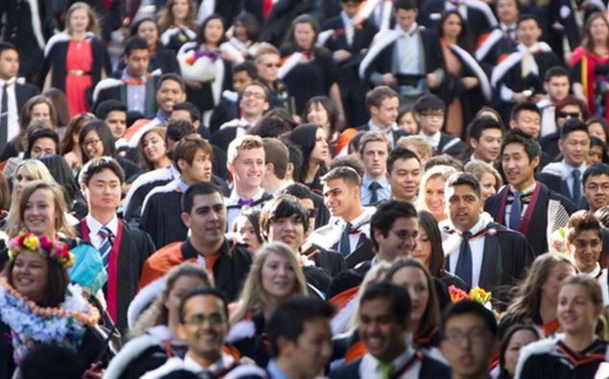
New Zealand universities are climbing up the world rankings as academics focus more on world-leading research.
Five of the country's eight universities have risen in the latest QS rankings. Waikato University is the stand-out success, leaping more than 100 places in three years to 292nd place - in the top 1.1 per cent of the world's 26,000 universities.
The only local university that dropped this year is the University of Auckland, but it has slipped only one place and at 82nd in the world it is still New Zealand's leading university.
Massachusetts Institute of Technology tops the world list for the sixth year in a row, followed by Stanford, Harvard and Caltech.
The list, produced by London-based consultancy Quacquarelli Symonds Ltd, is mainly driven by a survey asking 75,000 academics to rank the top universities in their fields, and appears to favour English-speaking institutions. The US, Britain and Australia have the most universities in the top 50 and in the top 100.
But Auckland University vice-chancellor Stuart McCutcheon said the rankings had a real impact on all universities.
"What matters to international students looking for somewhere to study, what matters to international academics looking for jobs, and what matters to international universities looking for partners, is the rankings," he said.
QS partnered with Times Higher Education to produce the first rankings in 2004. The partners split in 2009 and now produce rival rankings.
New Zealand universities generally fell in the rankings over the first decade from 2004. Auckland University, for example, slipped from a high point of 46th place in 2006 to a low of 94th in 2013.
That was largely because only 200 universities worldwide were ranked in the first three years. The numbers have grown to 916 last year and 959 this year.
However, all eight New Zealand universities have lifted their rankings since 2013. Universities NZ director Chris Whelan said the biggest driver was the Performance-Based Research Fund (PBRF), which allocates research funding to universities based on a formula in which the biggest factor is publications in international journals.
"It's meant we have actually had quite a single-minded focus on lifting the level and impact of our research," he said.
He said Professor Neil Quigley, an economist who was deputy vice-chancellor for research at Victoria University in Wellington before becoming Waikato University vice-chancellor in 2015, had lifted both Victoria and Waikato up the ranks.
"Victoria showed its single biggest increase in PBRF when he was there because he knew how to drive research that was likely to get impact and high visibility," Whelan said. "I think he has taken that model to Waikato."
Victoria has jumped 46 places since 2013, to 219th place, closing the gap on Canterbury University which has risen 24 places to 214th.
Waikato was ranked in a group between 401st and 410th in 2013, and is now 292nd.
Lincoln University has also jumped dramatically from between 481st and 490th in 2013 to 319th. Massey University rose 27 places to 316th.
Rankings for Otago University (now 151st) and AUT University (441st to 450th) have been stable.
Quigley said his approach at both Victoria and Waikato was that academics were expected to "make a contribution to the international literature".
"That is our job - to be producing innovative work and communicating it not just to our students in the classroom and through local channels, but in the international literature," he said.
But Tertiary Education Union president Dr Sandra Grey said the focus on international journal articles for both the PBRF and the world rankings discouraged academics from doing research for public agencies, iwi and the community, and forced them to spend less time with students.
"We have a system now where peer-reviewed journal articles, which is a very particular type of knowledge dissemination, has become the be all and end all of what our managers want," she said.
"As a result students are missing out, employers are missing out and communities are missing out."
The QS World University Rankings use six metrics to calculate university performance:
Academic Reputation (40%)
Employer Reputation (10%)
Faculty/Student Ratio (20%)
Citations per faculty (20%)
International Faculty Ratio (5%)
International Student Ratio (5%)
'Unique' approach wins praise
The University of Waikato was the obvious choice for William Lewis.
The 21-year-old is in his fifth and final year of a law and social sciences conjoint degree with honours.
Lewis grew up in the Coromandel, and was drawn to the University of Waikato by the strong connection with the wider community and quality of the teaching.
He expected the new ranking would resonate with other students as well.
"The move up probably demonstrates something we've known for a while. An increasing number of students are coming here from around the country and around the world as well for the really good teaching quality."
Now president of the student union and in his final year, Lewis has a job lined up at Ernst & Young in Auckland next year as a management consultant.
Lewis said the law degree at Waikato worked closely with local business, which led to him interning and working for a local law firm during his degree. Waikato's "unique" approach to law studies had prepared him well for the EY job, Lewis believed.
"Specifically for law, it's quite unique in that it's taught in a contemporary and bicultural context...that means for example there's a bit less legal history and papers are more focused on contemporary skills that practitioners need to be good lawyers."
A focus on alternative dispute resolution - which tries to solve disputes without going to court - and an emphasis on tikanga Maori are among aspects of the course he thinks are special to Waikato.
Take your Radio, Podcasts and Music with you









